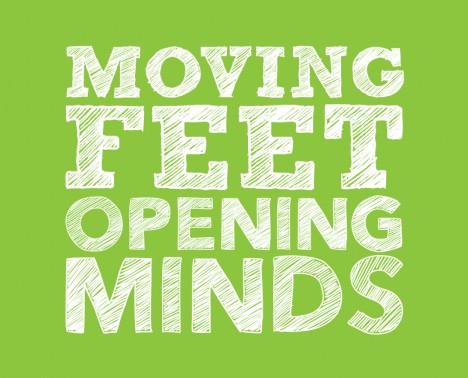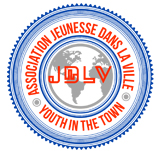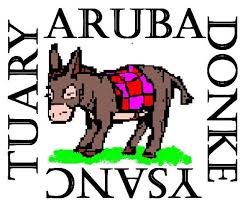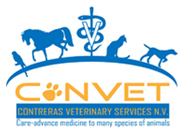As part of our latest Vocational Educational Training (VET) project, we asked our hosting partners what impacts Moving Feet Opening Minds had on their organisation, beneficiaries and local community. They are also explaining the methods they used to best support our VET trainees. Here
This project is co-funded by the Erasmus+ programme of the European Union.
Jeunesse Dans La Ville (Youth In The Town) – Martinique
By Emilie PEPE
For more than two years, our association has collaborated on a mobility project for young workers called “Moving Feet Opening Minds” created by the organization “Everything is possible”.
We are responsible for the project’s management in Martinique territory and we act as a partner. Our main mission is the reception of group of British trainees over periods of 2 weeks. Thus, we put them in contact with different sport associations and we make sure to familiarize them with the Martinican culture by organizing various activities with sports students of our organization.
Thanks to our partners, we were able to place these English students in sport clubs in Le Robert where they were able to coach young people in activities such as Football, Rugby, Athletics, basketball and gymnastics.
Depending on the discipline, they were in charge of total or partial training and had to:
● Take charge of the warm-ups and replace the coach by coaching the players on some workshops.
● Take charge of the warm-up, set up workshops, organize/take part in matches and take care of stretching.
From the start to the bottom, we guarantee these young people a support for the duration of their experience:
● We plan a meeting where we explain what the members’ clubs expect from them.
● We were always present on the first day of training for introductions and exchanges.
● And as far as possible an employee of our structure went to the coaching site for possible translation to allow a smooth running of activities.
● We also organized French workshops with our young sports students to facilitate exchanges between the students and the local players.
To prepare the introductory workshops for the French language, we deduced after reflection that we had to program fun and practical activities to enable the assimilation of this language. We started from an observation, and decided to work on 3 points which seemed to us essential:
● Salutation and basic expressions of the language
● Give directions (sports field)
● Expressions and vocabularies of sport
From this, we developed a program of activities with role plays to practice and pronounce well, games to retain the vocabulary, and sport workshop for situations.
After having received some feedbacks from the supervising teachers, I can say that among these young people some have become more autonomous:
● Faced with some personal expenses, they learned how to manage their pockets money
● On the tasks of “everyday life at home”
They all lived in collocations in a big house. Life in community is not easy, and many of them I think have learned from this experience especially on the human level.
On the professional side, they had the opportunity:
● To develop language skills
● To work verbal and nonverbal communication
● To manage groups of children during sports activities
● Set up workshops according to a goal to be achieved
The various club members were always very enthusiastic about receiving the English trainees because they clearly noticed a drastic change in their players.
Indeed, they saw them more attentive and serious during training despite the language barrier.
First, they made the effort to be punctual, they were attentive and observers to understand what the English students expected from them during all the workshops. It has been really beneficial for them to meet other young people from another culture with a different behavior.
It has been a rewarding experience and local coaches are very open to this type of exchange.
After 2 study trips in UK which was conclusive and rewarding.
We maintain a very good relationship with all partners, all eager to return to Martinique.
Indeed, the passion that each partner has for the idea of renewing this project shows us in a certain way their recognition and the desire to work with us again.
We learnt a lot about the importance of rigor, organization and communication. What is very crucial. Now, we are aware of being more efficient and effective to improve the quality of our services.
Donkey Sanctuary Aruba – Aruba
By Desiree Eldering
Donkey Sanctuary Aruba is a non profit organisation that takes care of wounded, stray and donkeys in general. We started 21 years ago with 10 donkeys who were being hit by cars or mistreated. Today we take care of 130+ donkeys. The daily care is in the hands of our volunteers. The students work with one of our volunteers and do not have total responsibility of the Donkey Sanctuary. In the past we could take care of the donkeys with a minimum of 2 volunteers per day, since we moved to a bigger location and all donkeys are together now, we need more hands on. We are very happy to give UK trainees an opportunity to come and learn about our donkeys and about our culture. We plan special procedures when the students are here, like i.e. deworming of all the donkeys or the castration of a stallion. Just to make the experience more interesting. We really like all the help we can get and are happy to help the students in any way we can think of.
When the students come they get a lot of structure. They learn that the work to be done is every day the same. They learn to respect the animals and their needs. They learn about the routine that the donkeys are used to. The donkeys need to be fed in the morning and in the afternoon. In between times the students clean the premises and help to maintain the property like weeding and trimming bushes, or paint all stable doors.
Sometimes it is to learn not to give up when they are tired, sometimes it is just some quality time with a cuddly donkey that gets them motivated again.
If they are interested in some more than just working with the donkeys we also have a souvenir shop where they can do some sales, or talk/inform our visitors about the history of the donkeys on Aruba or the donkey as an animal. There is no pressure to perform, the student can do what they do best. Some students learn they like sales more than working with the animals. Some like the medical assistance (vet) best.
We learned that quite a lot of the students go back home knowing what they are going to do next, instead of not knowing at all. They will start looking for a job or start a new study. It is nice to see how they develop during their stay. Some become more confident while they are on Aruba, some will get the confidence after their trip.
When in the UK we visited the schools and institutes that come to Aruba to the Donkey Sanctuary and the Veterinary Clinic and listened to the stories students told us. I was very moved by these presentations and happy to learn that we have so much impact on their lives. More reason for us to welcome more groups. For us it is a win- win situation.
Contreras Veterinary Services & Dog Lovers Grooming Services – Aruba
By Ricardo Contreras
Contreras Veterinary Services & Dog Lovers Grooming Services are private business that works to provide Health and Care of animals in Aruba for more than 25 years. We are mostly busy with domestic small animals (90 % dogs 5 % cats) but also attend large animals like horses, donkeys and others like exotics pets. We offer quality services as surgery, laboratory, X-ray, ultrasonography, hospitalization, boarding, consultation, pharmacy & more. We are 5 Veterinarians and 9 helpers that works in two locations. By Dog Lovers Grooming Services works 5 staff that provide external hygiene y beauty mostly for dogs.
Since we are receiving young trainees from UK I think the main experience that we make them live is to feel the day to day of a veterinary clinic. They learn to receive a patient, the importance of the statistical part (weight, temperature, breed, age, sex, symptoms, description, identification, etc.), they also learn to handle animals that are anesthetized and not anesthetized (aggressive or stressed). They can also learn and experience to place an IV catheter and hypodermic injections, cleaning of wounds, application of bandages and splints. They can be witness of surgeries and they can even act as assistants during them. They also do cleaning jobs of consulting room, surgery room, hospital kennels and boarding. And many more activities.
Our companies always like to collaborate with governmental and non-governmental institutions in regards to health, prevention and animal rescue, especially with the Donkey Sanctuary Aruba of which we are members, for that reason we were involved with the young trainees of everything is possible. But it was not until we visited the UK and listened to the testimonies of these young people, that we realized the impact of this Aruban experience in their lives. It was very gratifying to hear them and since then everything have more sense to Us for this symbiotic relationship with this organization that will always be well come. Thank you.
IDEUM – Sweden
By Louise Renberg, Teacher at Sandbackaskolan, Arvidsjaur
During a fortnight in December 2017 Sandbackaskolan i Arvidsjaur took part in a project called Moving Feet Opening Minds. We hosted 20 rugby players and four of their leaders from Wigan.
Our school is an upper secondary school with approximately 400 students. We are situated in the north of Sweden in a small village called Arvidsjaur. At our school we have both vocational programmes and higher education preparatory programmes such as Natural Science programme, Social Science programme, Business Management and Economics programme, Vehicle and transport programme, Child and Recreational programme and Health and Social Care programme.
During their stay in Arvidsjaur the students from England took part in ordinary PE- and English lessons as well as trained their sport. They were introduced to skiing, both cross-country and downhill, skating and tabata and at the same time they met with our students in different programmes. Since The English students are into rugby, which isn’t particularly big in our region, they also taught our students a few things about their sport.
This was very much appreciated among our students. During English lessons we worked with the actual language as well as comparing cultures, countries etc.
We also showed some of our winter activities to give a hint of what differences there are between our countries. An example of this is when we went to a slope next to our middle school and used that to slide downhill on the snow on mattresses and toboggans. An open fire to warm hands on and for grilling our typical “Falu sausage” was lit at the bottom of the hill.
No specific methodology was used to help the UK trainees. We used our usual teaching and the new environment to try to show differences as well as similarities. They came to a small place where it was dark, snowy and cold as they had wanted and we tried to do our best to show it in a good way.
From what I have been told by one of the leaders of the group they found their stay here most achieving. They were made stronger as a group and several of the lads learnt lots about taking responsibility both for themselves and their group.
We’ve been told that they had some once in a lifetime experiences that they will never forget and we are very happy hearing that.
From the point of view of Sandbackaskolan, both when it comes to staff and students our visitors had an immense impact on us. By their positive attitudes they showed that nothing is impossible! They made our students talk English, realising that they manage much more than the think! Meeting people from another country and learning about their way of living and their thoughts creates an understanding and curiosity for other people which is very important in this world.
National Cat Society – Malta
By Carmel Serracino-Inglott
The National Cat Society – NCS (founded in 1995) decided to do something to eliminate the sorry state many cat stray colonies were in. Two main alma run parallel to one another. (a) to establish a cat sanctuary (b) to educate the general public in general but with special attention to young citizens.
Re (b) the NCS has qualified tutors and it was deemed fit to invite students to come forward to acquire knowledge of how to care for these cats ( adopting the ‘learning by doing’ principle). Our organization therefore offers trainees the to follow these operations:
(1) Let’s group some cores under the heading of HYGIENE, for we believe that this is the crux of running a sanctuary. The motto is Keep the sanctuary spotlessly clean and in ship shape conditions thus arresting all invading epidemic ‘enemies’ and therefore keeping at by endemic ‘enemies’. If there are or appear that there are symptoms of these enemies (say ring worm) then action is triggered. This is the ‘credo’ we try to instil in the gray matter of all students. Therefore daily. (a) an inspection of the site is carried out and students have to point out any abnormalities (strange happenings) say a sickly looking cat. Most cats (97%) are free range. Also state of cleanliness of beddings etc. Remedies are taken in hand and recorded. Then and only then we start the routine vital cores (b) collecting all litter trays both from free range spots and cages in the sick bay, recovering bay and isolation bay. Litter trays are inspected. Any remarks (loose organic material) is reported. Trays emptied into plastic bags and then power washed dried and refilled. (c) another group collects all food trays also nothing remains especially from the cages (as in the food there might be medicines mixed according the vet’s prescriptions. Again a cat might be refusing to eat hence solutions are put into practice ( forced feedings? change of food ? Cuddling needed -especially if the cat is new? (6) Cleaning of the floors and garden. (e) cleaning of the shelves, baskets and sofas as well as any other furnishings (such as scratching structures). (f) The cages are cleaned in a refined way. All the walls are well washed using disinfectant for use near animals.
(2) FEEDING. Feeding the free range cats is easy. (a) First all dry food dishes are-refilled (these are washed three times a week.) with first grade pellets. Then the small trays in the cages filled as per specifications (day using ‘renal’ preparations for specific patients) . The soft food is prepared as per individuals as some are under medications and the medicine has sometimes to be mixed with this food. Stainless steel plates are preferred. We have trained volunteers for this purpose.
(3) ADMINISTRATION OF MEDICINES. Medicines are not always mixed with food. There are ointments for the ears, others for the eyes and skin. Of course beside the information provided by the vet’s prescription one has to read the information on the leaflet accompanying the pack. Medicines are stored in a locked pharmacy cupboard. Other medicines come in the form as injections and applied according the behaviour of the animal.
(4) CUDDLING, GROOMING and UNDERSTANDING VOCAL AND BODY LANGUAGE. Cats love cuddling and grooming; in fact they do it themselves but is not enough and so students learn how to groom with designed brushes and when to stop as when the cat thinks that it has had enough. With a little bit of patience one learns that cats obey commands ( if they feel like it) They learn their human imposed names very quickly.
OK the trainees from the UK were assigned to individual local volunteer single or in twos. The trainees first observed what the volunteer was performing whilst listening to explanations why this core is done so and the other is done another way, maybe, then the trainee does the core under the volunteer’s direction. The trainees are encouraged to ask questions and point out any better ways of ‘attacking’ a core. A discussion might follow. If a core is too hard or dangerous the trainee is asked to participate just by paying attention to the procedure. The volunteer tries to ‘export’ as much information to the trainees as possible. When we jobs elsewhere but connected with the running of the sanctuary the trainee is offered to accompany the volunteer (e.g. vet runs. purchasing ( and bargaining ) food and other objects). Though the trainees since they come in groups with a tutor we only offer them information about current cultural activities and the possibility of going out together if they so agree. We also try to explain the different culture and language as to our surrounding Med countries.
Of course we use the Learning by Doing method but we make a point that OBSERVATION is vital to a sanctuary like ours. Then follows the Reporting of any relevant (or even seemingly relevant) in detail. Then comes ACTION (now usually taken by experienced trainees). Eventually (sometimes next day) Result is analysed and recorded. Result is always the ultimate target whether it is positive or negative. If need be EXPLANTION cum DISCUSSION follows filing proceedings for future reference.
Well, the trainees whilst taking part in this compressed project they have acquired of 1. how to run a sanctuary efficiently (considering that funds, though available, are still not that early to obtain). The love, dedication of the trainees towards the cats are there to encourage other visitors to join the group hence the trainees will in still in them the initiative to do things. The trainees even without really realizing at that moment, skills will become imbedded in their DNA for future release. The skills are to observe and do to learn fully the skill; repeat it, refine it discuss it, conclude. This has to be in practice and not on paper only. The skill to ask questions is paramount.
They now know how to keep a place spotlessly clean. They know how to look at cats in a professional way. They know when a cat looks sick and what steps are to be taken; follow ups. They now are not afraid to inject a pet, how to put eye drops or cream in cats’ eyes, ears. They know how to cuddle and groom a cat.
Now one is to point out that not only we as directors of the NCS have learnt a lot from the presence of the trainees but also many local people were impressed by the enthusiasm the youths have shown both by helping us in our quest to attract more people do join voluntary organizations. Already some street groups started to take care of their strays i.e. not only feeding them but also taking them to vets for check-ups. This is great in deed. The NCS on the other hand is encouraged to expand its operations. Also a few schools visiting the complex where the sanctuary is situated were drawn to the sanctuary by the presence of these trainees and questions were asked and opinions exchanged and the end result was that a couple have devised a programme with us to send some of their students to carry out a project at our sanctuary.
The European Commission support for the production of this publication does not constitute an endorsement of the contents which reflects the views only of the authors, and the Commission cannot be held responsible for any use which may be made of the information contained therein.







